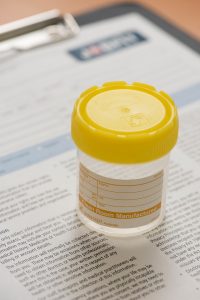With prescriptions for medicinal cannabis increasing, Australian employers are urged to consider what affect this may have on the work readiness of their employees.
Medicinal cannabis was legalised in Australia in 2016 and is most commonly prescribed by doctors to treat chronic pain, cancer-related symptoms, anxiety, epilepsy and other neurological disorders.
Most medicinal cannabis products are unregistered drugs. Therefore, their prescription must be approved under the Therapeutic Goods Administration Special Access Scheme-B or Authorised Prescriber Scheme.
In Australia, cannabis is legal only when it has been prescribed by a qualified health professional to treat a specific medical condition. Apart from in the Australian Capital Territory, where personal use has been decriminalised (not legalised), recreational use of cannabis remains illegal.
So, what does medicinal cannabis prescription mean for drug testing in the workplace?
The chemical structure of cannabis
Cannabidiol (CBD) and tetrahydrocannabinol (THC) are the two main compounds found within the cannabis sativa plant.
THC is the main psychoactive compound that gives users the sensation of being “high”. THC is consumed through smoking the cannabis plant, but it is also available in medicinal cannabis products.
Medicinal cannabis is available in different combinations which can range from THC only, THC dominant, to CBD dominant. At present, there is no product available that is 100% CBD.
Workplace drug or saliva (oral fluid) tests will be testing for THC. As THC is the compound which provides a psychoactive result and could potentially affect the ability of staff to perform their duties, it is the key compound to be identified. CBD’s side effects are considered minor, but still relevant in some occupations, when compared with THC.
Are your employees driving or operating heavy machinery in their roles?
It is illegal for drivers to operate a vehicle with any amount of THC in their body. This is the law across all Australian states and territories. If a driver is taking medicinal cannabis containing THC, and they test positive, they can lose their licence and be taken to court. They may potentially face a fine or criminal charges. The presence of THC can also be used as evidence to deny insurance and personal injury claims.
What does this mean for workplace drug testing?
An on-site instant urine test will usually detect drugs that have been taken 24 to 72 hours previously. However, cannabis can be detected in urine up to one month after it was last consumed.
Cannabis isn’t water soluble and is therefore unlikely to be detected in a saliva test beyond 24 hours of consumption. Saliva (oral fluid) tests may identify THC within four to six hours of consumption. Or if has been recently smoked or consumed.
How will prescription cannabis impact your workforce?
This comes down to your drug and alcohol policies, and whether your staff member’s medicinal cannabis, or the medical condition it is treating, is impacting on their ability to safely perform their duties. It is advisable for all employers to consider the potential implications of legally prescribed medicinal cannabis in drug and alcohol policies.
You should seek legal advice from an employment law specialist for detailed advice around your policies and procedures.
Your staff member may disclose to you, their manager or the human resources department that they have a prescription for medicinal cannabis. A staff member may also disclose their medicinal cannabis prescription to Jobfit before, during or after testing.
At Jobfit, our role is to determine fitness for work, considering workers holistically against the specific role. Safety and risk of the individual, and their potential impact on their immediate team, the wider staff group and the community is our highest priority. We also consider current regulated standards and legislation.
Jobfit makes it easy for your organisation
At Jobfit, our professional and qualified staff can conduct on-site drug and alcohol testing at your business or worksite.
For more information contact Jobfit on 1300 61 61 65 or request a quote for drug screening.

Drug and alcohol screening

